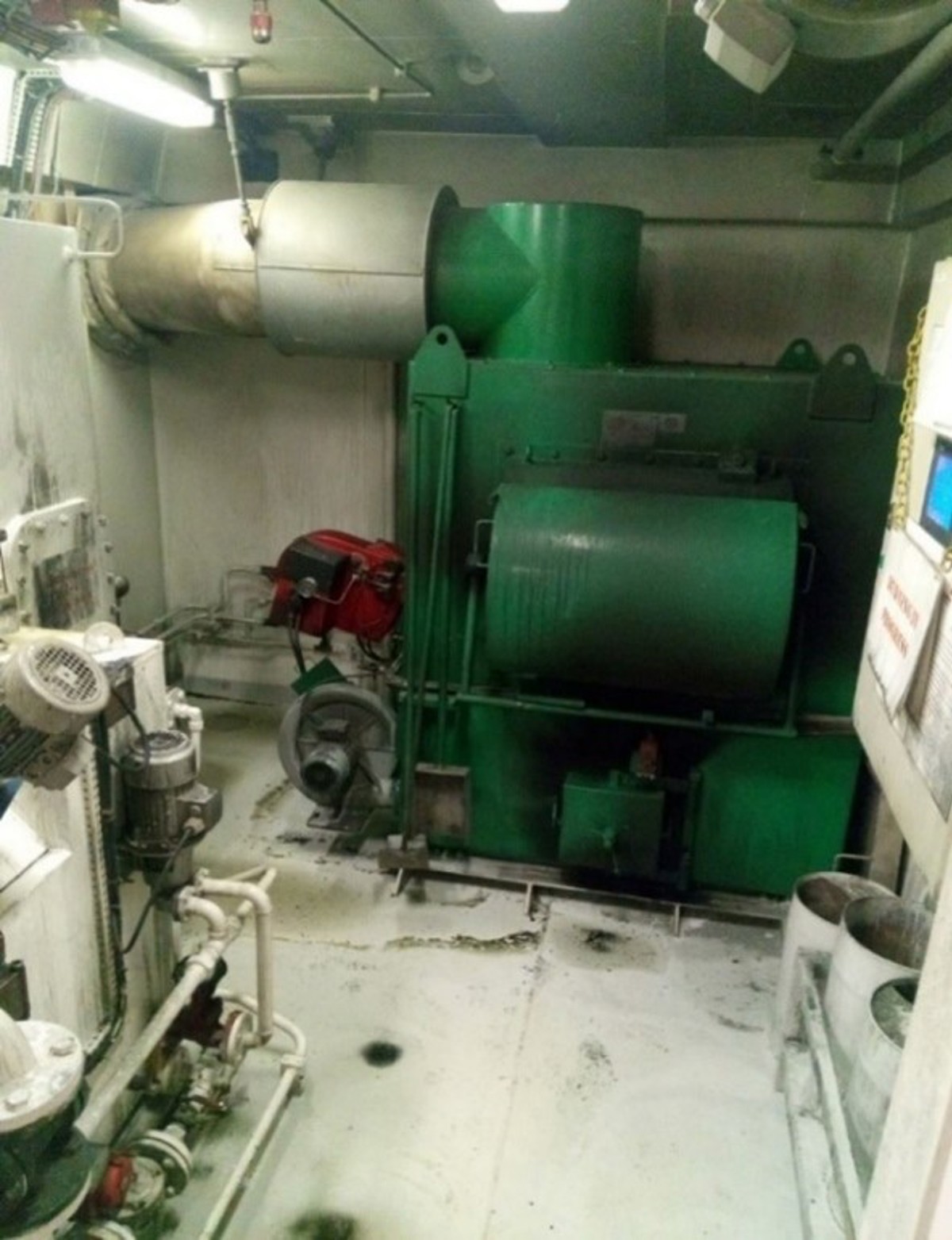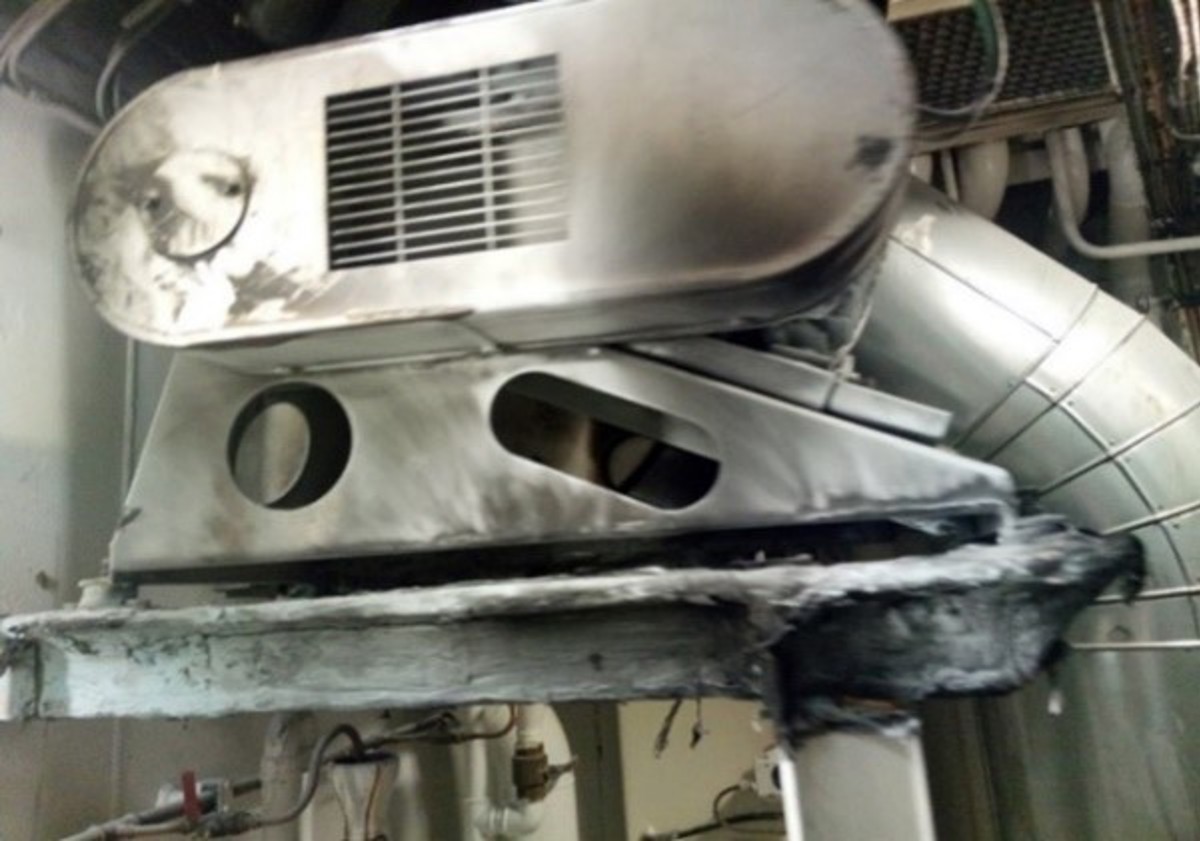Fires and fire risks on vessels
- Safety Flash
- Published on 26 November 2020
- Generated on 28 February 2026
- IMCA SF 32/20
- 2 minute read
Jump to:
Fire in incinerator and exhaust fan motor
What happened?
A tumble dryer was in operation when the heat within the machine exceeded its safe operating level resulting in items of laundry inside the machine overheating and generating smoke.
A crew member smelt smoke in the laundry and established it was coming from the tumble dryer. The tumble dryer was switched off and then opened and at which point the laundry items ignited due to the ingress of air.
The fire was quickly extinguished using a nearby fire extinguisher, the bridge was informed and a fire team mobilised to confirm the area was safe.
What went wrong?
The exhaust fan holding bolts were found broken inside the casing. Investigation confirmed that the fire was caused by overloading the incinerator with plastic and thereby creating excessively high temperatures.
This led to overheating of the exhaust fan which created an imbalance of the fan and consequent failure of the bolts.
Actions
- The manufacturer’s recommendations for maximum loads for the incinerator chamber, in terms of type and amount of waste, should be displayed at a conspicuous place near the incinerator.
- Further documented training/familiarisation for the operators.
- Segregation of waste as per garbage management plan.
Members may wish to refer to:
IMCA Safety Flashes summarise key safety matters and incidents, allowing lessons to be more easily learnt for the benefit of the entire offshore industry.
The effectiveness of the IMCA Safety Flash system depends on the industry sharing information and so avoiding repeat incidents. Incidents are classified according to IOGP's Life Saving Rules.
All information is anonymised or sanitised, as appropriate, and warnings for graphic content included where possible.
IMCA makes every effort to ensure both the accuracy and reliability of the information shared, but is not be liable for any guidance and/or recommendation and/or statement herein contained.
The information contained in this document does not fulfil or replace any individual's or Member's legal, regulatory or other duties or obligations in respect of their operations. Individuals and Members remain solely responsible for the safe, lawful and proper conduct of their operations.
Share your safety incidents with IMCA online. Sign-up to receive Safety Flashes straight to your email.

